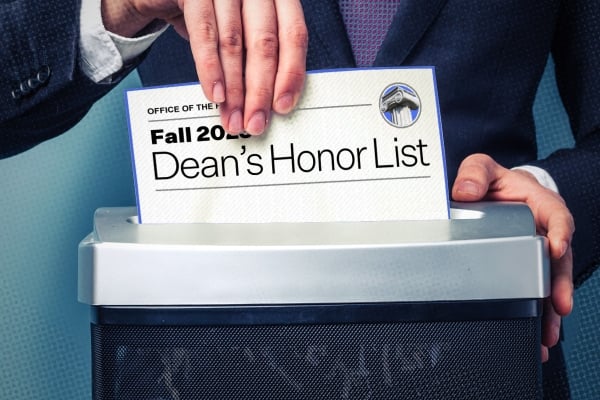For many college students, making the Dean’s List is a coveted accomplishment. It represents hard work, dedication, and academic excellence. However, some universities are starting to move away from the traditional Dean’s List system, sparking a debate about its relevance and effectiveness.
The Dean’s List is a roster of students who have achieved a high grade point average (GPA) during a specific semester. Typically, students must earn a GPA of 3.5 or higher to make the list. The recognition is often seen as a mark of academic achievement and can be a valuable addition to a student’s resume.
Despite its long-standing tradition, some universities are choosing to eliminate the Dean’s List in favor of other methods of recognizing student achievement. One reason for this shift is the belief that the traditional Dean’s List system can create unnecessary competition and stress among students. Some argue that focusing solely on GPA can detract from the overall learning experience and place undue emphasis on grades.
Another factor driving the end of the Dean’s List is the desire to promote a more holistic approach to evaluating student success. Some universities are exploring alternative ways to recognize students who excel in areas beyond academics, such as leadership, service, and creativity. By moving away from a GPA-based system, schools hope to encourage students to pursue a well-rounded education and develop skills that are not solely academic in nature.
Additionally, the rise of online education has also contributed to the decline of the Dean’s List. With more students opting for virtual learning environments, traditional methods of evaluating student performance are being reevaluated. Some universities are finding that the Dean’s List no longer accurately reflects the diverse learning experiences of their students and are seeking more innovative ways to recognize their achievements.
While the end of the Dean’s List may be met with mixed reactions from students and faculty, it signals a shift towards a more inclusive and balanced approach to recognizing student success. As universities continue to adapt to the changing landscape of higher education, it will be interesting to see how they continue to evolve their methods of evaluation and recognition. Whether the tradition of the Dean’s List will end remains to be seen, but one thing is certain – the way we recognize and celebrate academic achievement is changing.


